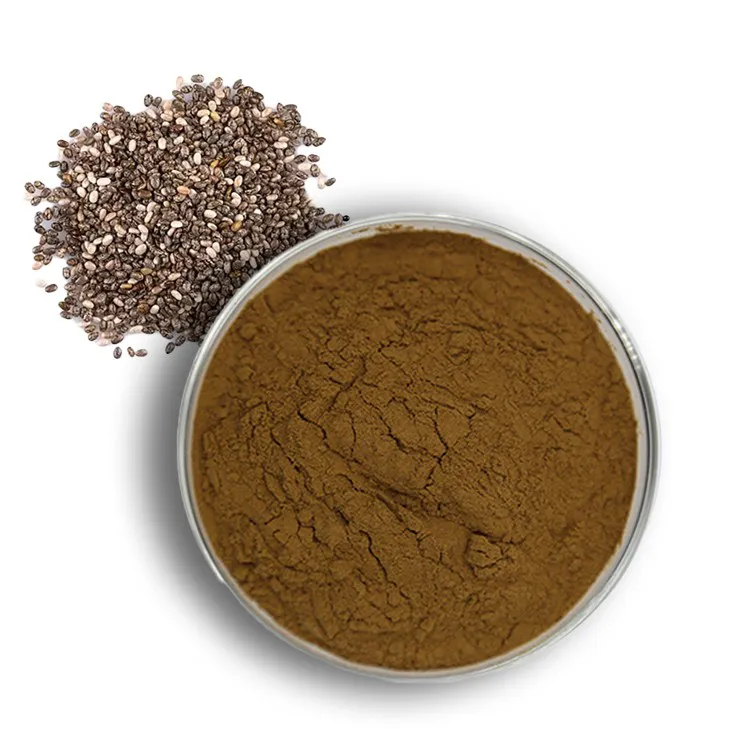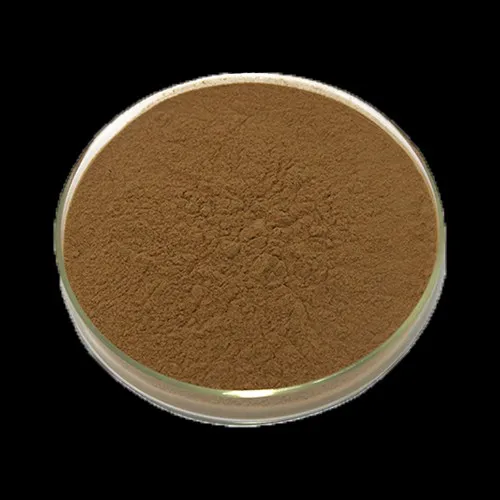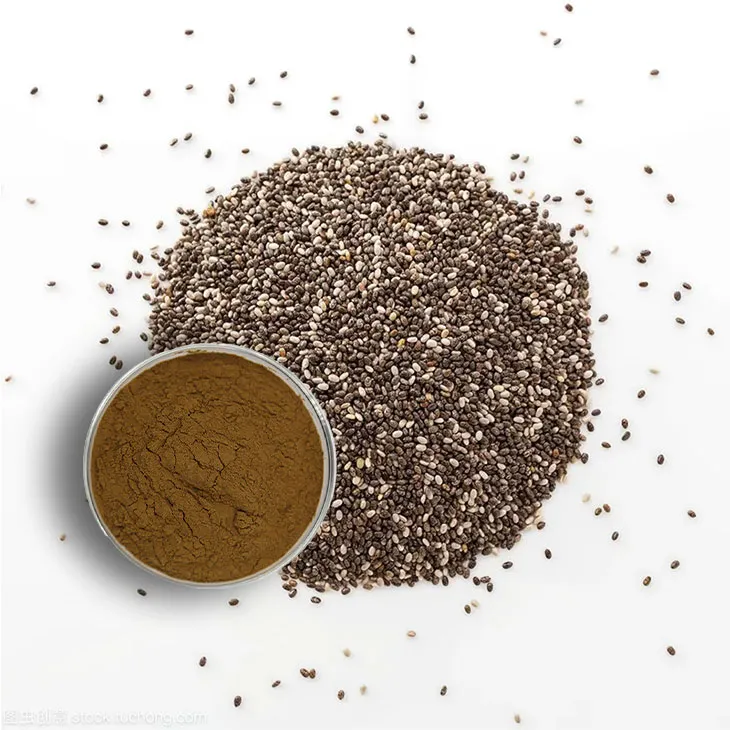- 0086-571-85302990
- sales@greenskybio.com
The Optimal Bioavailability of Chia Seed Powder.
2024-11-30

1. Introduction
Chia seeds have gained significant popularity in recent years as a superfood. Chia Seed Powder, in particular, offers a convenient way to incorporate the numerous health benefits of chia seeds into one's diet. However, the key to reaping these benefits lies in maximizing the bioavailability of the nutrients present in the powder. Bioavailability refers to the proportion of a nutrient that is absorbed from the diet and made available for use in the body. Understanding how to enhance the bioavailability of Chia Seed Powder is crucial for those seeking to optimize their health through dietary means.

2. Composition of Chia Seed Powder
Chia seed powder is rich in a variety of nutrients. It contains a high amount of omega - 3 fatty acids, specifically alpha - linolenic acid (ALA). ALA is an essential fatty acid that plays a crucial role in heart health, reducing inflammation, and improving cognitive function. Additionally, chia seed powder is a good source of fiber, both soluble and insoluble. Soluble fiber can help regulate blood sugar levels and lower cholesterol, while insoluble fiber aids in digestion and promotes bowel regularity.
The powder also contains protein, which is important for building and repairing tissues in the body. Along with these macronutrients, chia seed powder is rich in micronutrients such as calcium, magnesium, phosphorus, and zinc. These minerals are involved in various physiological processes, including bone health, muscle function, and immune system regulation.

3. Processing Techniques and Bioavailability
3.1 Grinding
The process of grinding chia seeds into powder can significantly impact the bioavailability of its nutrients. Fine grinding can break down the cell walls of the seeds, making the nutrients more accessible for absorption. When the seeds are ground into a fine powder, the digestive enzymes in the body can more easily access the omega - 3 fatty acids, proteins, and other nutrients locked within the cells.
3.2 Milling
Similar to grinding, milling can also enhance the bioavailability of chia seed powder. Different milling techniques can be used to achieve different particle sizes. A smaller particle size generally results in better bioavailability as it increases the surface area available for digestion. However, it is important to note that over - milling can potentially damage some of the nutrients, so finding the optimal milling process is crucial.
3.3 Cold - Pressing
Cold - pressing is another method that can be used in the processing of chia seed powder. This method is particularly beneficial for preserving the integrity of the omega - 3 fatty acids. Since omega - 3 fatty acids are sensitive to heat, cold - pressing helps to retain their nutritional value. By using cold - pressing techniques, the bioavailability of the omega - 3 fatty acids in chia seed powder can be maximized while maintaining their health - promoting properties.

4. Dietary Patterns and Bioavailability
4.1 Combining with Fat
When consuming chia seed powder, combining it with a source of fat can enhance the bioavailability of its omega - 3 fatty acids. Since omega - 3 fatty acids are fat - soluble, consuming them with fat helps in their absorption. For example, adding chia seed powder to a smoothie made with full - fat yogurt or coconut milk can improve the uptake of these beneficial fatty acids. This combination also adds a creamy texture and delicious flavor to the smoothie.
4.2 Pairing with Vitamin - C Rich Foods
Pairing chia seed powder with foods rich in vitamin C can enhance the absorption of its non - heme iron content. Non - heme iron is not as easily absorbed as heme iron, but the presence of vitamin C can increase its bioavailability. For instance, adding chia seed powder to a fruit salad that contains oranges, strawberries, or kiwis can help the body better absorb the iron present in the chia seeds. This combination not only boosts iron absorption but also provides a refreshing and nutritious meal or snack.
4.3 Incorporating into Fermented Foods
Incorporating chia seed powder into fermented foods can also have a positive impact on bioavailability. Fermented foods contain beneficial bacteria that can help break down the nutrients in chia seed powder, making them more accessible for absorption. For example, adding a small amount of chia seed powder to homemade yogurt or kefir can enhance the overall nutritional value and bioavailability of the chia seeds. The fermentation process can also improve the digestibility of the fiber and protein in the chia seed powder.
5. Storage and Bioavailability
Proper storage of chia seed powder is essential for maintaining its bioavailability. Chia seed powder should be stored in a cool, dry place, away from direct sunlight. Exposure to heat, moisture, and light can cause the degradation of its nutrients, particularly the omega - 3 fatty acids. Storing chia seed powder in an airtight container can also prevent oxidation, which can reduce the bioavailability of the nutrients. Additionally, it is recommended to consume chia seed powder within a reasonable time frame to ensure maximum nutritional value.
6. Conclusion
In conclusion, chia seed powder is a highly nutritious superfood that offers a wide range of health benefits. However, to fully realize these benefits, it is important to optimize its bioavailability. Through proper processing techniques, strategic dietary pairings, and proper storage, the nutrients in chia seed powder can be more effectively absorbed by the body. Whether it is through fine grinding, combining with fat or vitamin - C rich foods, or incorporating into fermented foods, there are numerous ways to enhance the bioavailability of chia seed powder. By taking these steps, individuals can make the most of the chia seed powder's nutrients and contribute to their overall health and well - being.
FAQ:
What is the composition of chia seed powder?
Chia seed powder is rich in various nutrients. It contains a significant amount of dietary fiber, which can aid in digestion. It also has healthy fats, such as omega - 3 fatty acids. Additionally, it has proteins, vitamins (like vitamin B complex), and minerals (such as calcium, phosphorus, and magnesium).
How do processing techniques affect the bioavailability of chia seed powder?
Processing techniques can have a profound impact on the bioavailability of chia seed powder. For example, grinding the chia seeds into powder can increase the surface area, which may enhance the release of nutrients during digestion. However, improper processing, like over - heating, might potentially damage some of the heat - sensitive nutrients, reducing their bioavailability. Appropriate processing methods need to balance between making the nutrients more accessible and preserving their integrity.
What dietary patterns can enhance the bioavailability of chia seed powder?
Combining chia seed powder with a diet rich in fruits and vegetables can enhance its bioavailability. Fruits and vegetables often contain enzymes and other compounds that can aid in the digestion and absorption of chia seed powder's nutrients. Also, consuming chia seed powder with a source of healthy fat, like avocado or nuts, may improve the absorption of fat - soluble vitamins and omega - 3 fatty acids present in the chia seed powder.
What are the health benefits of optimal bioavailability of chia seed powder?
When the bioavailability of chia seed powder is optimal, one can experience several health benefits. The omega - 3 fatty acids can contribute to heart health by reducing inflammation and improving cholesterol levels. The dietary fiber can help with digestive regularity, prevent constipation, and may also play a role in managing blood sugar levels. The proteins in chia seed powder can be beneficial for muscle building and repair, and the vitamins and minerals can support overall well - being.
How can one measure the bioavailability of chia seed powder?
Measuring the bioavailability of chia seed powder can be complex. One approach is through laboratory studies where the levels of key nutrients are measured in the blood or tissues before and after consuming chia seed powder. Another way is to conduct digestion simulation studies to see how much of the nutrients are released during the digestive process. However, these methods are often more suitable for research settings and may not be easily applicable in everyday situations.
Related literature
- Title: The Influence of Processing on the Nutritional Properties of Chia Seeds"
- Title: "Bioavailability of Nutrients from Superfoods: A Review with Focus on Chia Seeds"
- Title: "Dietary Combinations for Optimal Absorption of Chia Seed Nutrients"
- ▶ Hesperidin
- ▶ citrus bioflavonoids
- ▶ plant extract
- ▶ lycopene
- ▶ Diosmin
- ▶ Grape seed extract
- ▶ Sea buckthorn Juice Powder
- ▶ Beetroot powder
- ▶ Hops Extract
- ▶ Artichoke Extract
- ▶ Reishi mushroom extract
- ▶ Astaxanthin
- ▶ Green Tea Extract
- ▶ Curcumin Extract
- ▶ Horse Chestnut Extract
- ▶ Other Problems
- ▶ Boswellia Serrata Extract
- ▶ Resveratrol Extract
- ▶ Marigold Extract
- ▶ Grape Leaf Extract
- ▶ blog3
- ▶ blog4
-
Chinese Hawthorn Extract Powder Suppliers.
2024-11-30
-
The best Tongkat Ali extract in nature.
2024-11-30
-
Chinese Ginger Extract Powder Suppliers.
2024-11-30
-
Organic non - transgenic black rice extract.
2024-11-30
-
Cat Claw Extract
2024-11-30
-
White Peony Extract
2024-11-30
-
Bilberry Extract
2024-11-30
-
Chia Seed Powder
2024-11-30
-
Bayberry Extract
2024-11-30
-
Cactus Extract
2024-11-30
-
Black Pepper Extract
2024-11-30
-
Beta Carotene
2024-11-30
-
Withania Somnifera Extract
2024-11-30
-
Pomegranate Extract
2024-11-30




















